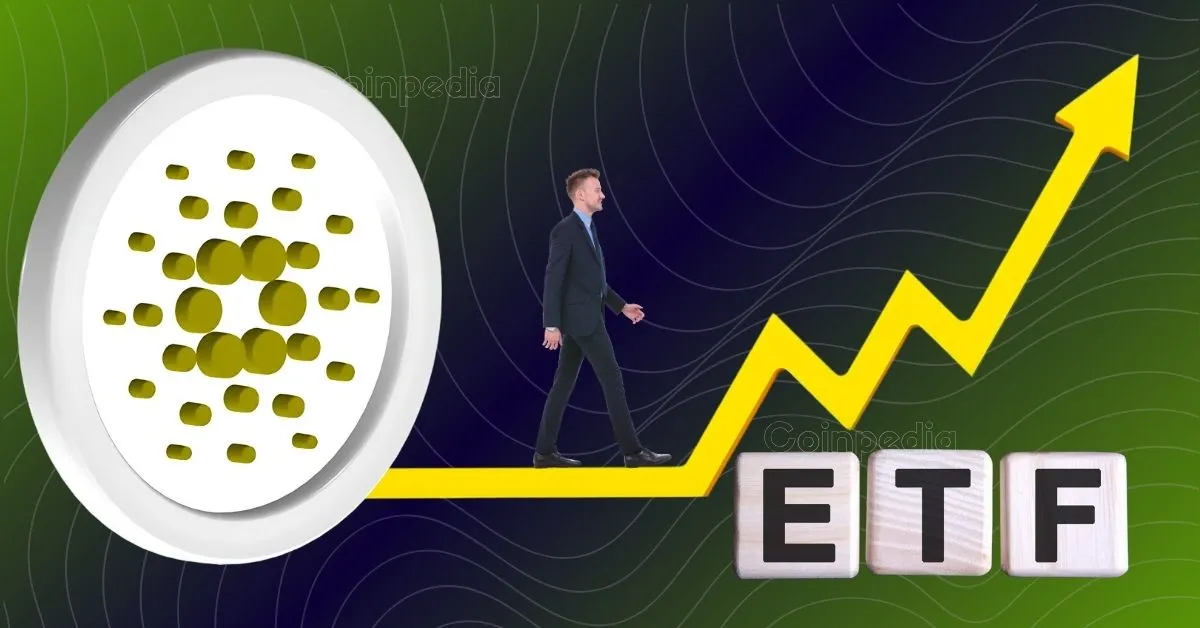The Role of AI in Shaping the Future of Cryptocurrency Markets
Artificial Intelligence (AI) is increasingly becoming a formidable force in transforming industries, and the cryptocurrency market is no exception. From trading algorithms to regulatory compliance, AI is reshaping how investors, projects, and institutions approach the rapidly evolving digital asset landscape. Analyzing Cardano’s ETF journey and price movements through the lens of AI reveals new dimensions of market analysis, decision-making, and innovation potential.
—
AI’s Influence on Market Prediction and Volatility Analysis
The turbulence in Cardano’s price following regulatory delays is a classic example of market volatility driven by uncertainty. AI-driven predictive models excel in parsing vast volumes of data—from SEC filings to social media sentiment and trading volumes—to forecast possible price movements. Machine learning algorithms can identify patterns that human traders might overlook, such as the repeated SEC postponements leading to short-term price dips and rebounds.
By applying natural language processing (NLP) to scan regulatory announcements and news trends, AI tools offer investors real-time sentiment analysis that helps manage risks associated with volatile assets like ADA. This capability not only aids individual investors but also institutional players aiming to time their market entry or exit strategies more precisely.
—
Enhancing Regulatory Compliance and Risk Management
Regulatory uncertainty, as seen with the SEC’s cautious stance toward Grayscale’s Cardano ETF, often complicates crypto market participation. AI-powered compliance tools streamline the complex process of monitoring evolving regulations and ensuring adherence to requirements. For brokerages like eToro, which have faced SEC fines, deploying AI systems can automate transaction reporting, flag suspicious activities, and adapt swiftly to new rulings.
This capability mitigates risks of penalties and supports smoother operations in a regulatory environment still defining itself. Additionally, AI can assist regulators themselves by analyzing market behavior for signs of manipulation or fraud, thereby fostering healthier crypto ecosystems.
—
Driving Innovation and Adoption in Blockchain Ecosystems
Cardano’s ongoing technical development amid fluctuating market conditions hints at the underlying innovation driving its ecosystem. AI integration within blockchain projects promises to accelerate this trajectory. Smart contract optimization, automated decentralized finance (DeFi) strategies, and enhanced scalability are just a few areas where AI algorithms can boost performance and user experience.
For instance, AI can power decentralized autonomous organizations (DAOs) that manage project governance with greater efficiency or optimize token economics based on predictive demand models. Such advancements could elevate Cardano’s competitiveness among altcoins and attract a broader investor base if combined with mainstream instruments like ETFs.
—
Potential Challenges and Ethical Considerations
While AI offers exciting opportunities, its application in crypto markets is not devoid of challenges. The opacity of some AI models may obscure decision rationales, complicating accountability. Furthermore, reliance on AI-driven trading might amplify flash crashes or systemic risks if many actors respond identically to signals without nuanced judgment.
Moreover, AI itself requires data—sometimes personal and sensitive—to function optimally, raising privacy concerns. Careful governance and transparent frameworks will be vital to ensure AI’s role in cryptocurrency markets promotes fairness and trust rather than exacerbating vulnerabilities.
—
Looking Ahead: AI as a Catalyst in Cardano’s ETF Narrative
Should Grayscale’s Cardano ETF gain approval, AI technologies are poised to amplify the benefits by making ADA more accessible and better understood. Automated portfolio management tools could integrate Cardano ETF shares, offering diversified exposure to a broader investor pool. Concurrently, AI-enhanced analytics would further demystify market behaviors, enabling smarter investment decisions.
As Cardano advances technically and pursues regulatory acceptance, embracing AI will likely be a strategic differentiator. It represents not just a tool for improved trading or compliance but a fundamental enabler of scaling complex blockchain ecosystems with agility and intelligence.
—
Conclusion: AI and the Future of Crypto Investment Dynamics
Artificial Intelligence injects a layer of sophistication into the cryptocurrency world that complements and challenges traditional approaches. The Cardano ETF saga exemplifies the uncertainties and opportunities characteristic of this space—where regulatory patience meets technological innovation. AI stands as a powerful ally in navigating these complexities, from predicting price swings triggered by SEC delays to enhancing compliance and driving ecosystem innovation.
For stakeholders in ADA and the broader crypto market, integrating AI thoughtfully could transform volatility into opportunity, regulatory hurdles into smoother pathways, and pioneering projects into mainstream successes. The unfolding partnership between AI and digital assets heralds a transformative chapter in financial evolution—one that promises smarter, faster, and more resilient markets ahead.











